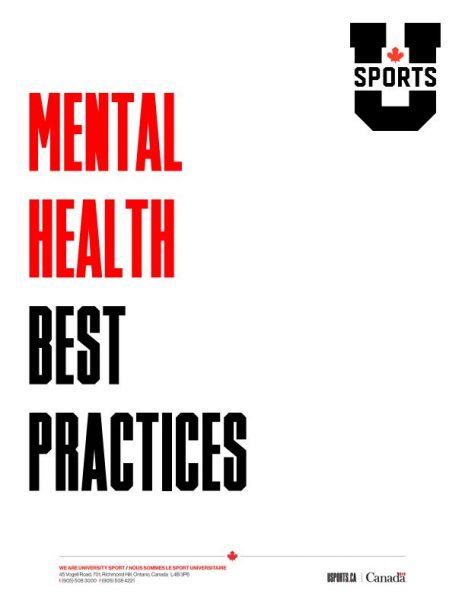Setting the Stage
Introduction
Participation in post-secondary varsity athletics can be rewarding and provide an opportunity for students to attend university while actively pursuing their athletic careers with the hope of becoming a professional athlete after their post-secondary career ends. Some varsity athletes also receive partial or full funding for their academic studies while in post-secondary. However, a number of risk factors exist in varsity athletics that add a complex dynamic to the possibility of experiencing the onset of mental illness at a stage of life already associated with higher rates of such reported events (Van Slingerland & Durand-Bush, 2018). Mental health and wellness of student-athletes is an important aspect of their overall health and academic and athletic performance. Mental illness rates are higher among young adults and athletes are no exception to this. Demands including academic, financial, family and interpersonal are all intensified during young adulthood. Mental health problems may present or increase during this critical time. In one study of competitive collegiate student-athletes, the prevalence of depression was found to be 21%1. Mental health issues can include diagnosable disorders such as depression, anxiety and ADHD but can also include situational crisis and difficulty coping with the stressors of life, school and sport.
The two sections below are helpful resources to:
- Gain a deeper understanding of relevant research on the topic of student athlete mental health to date.
- Review best practices across various levels of elite athletics on how best to cultivate an environment to support student athletes.



